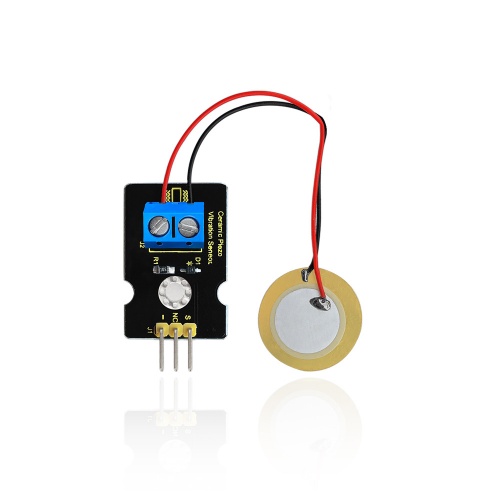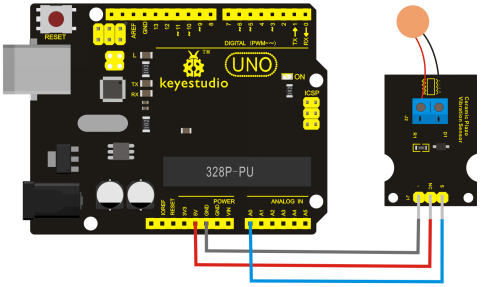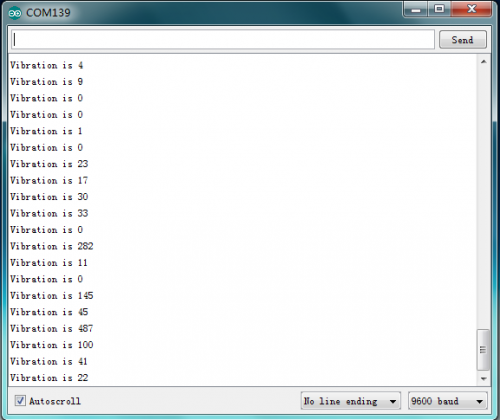Ks0272 keyestudio Analog Piezoelectric Ceramic Vibration Sensor
Analog Piezoelectric Ceramic Vibration Sensor
Introduction
This vibration sensor is based on piezoelectric ceramic chip analog vibration. It makes use of the anti-conversion process that piezoelectric ceramic vibration will generate the electric signals. When vibrating the piezoelectric ceramic chip, the sensor’s signal terminal will generate electrical signals.
The sensor can be used with Arduino dedicated sensor shield, and Arduino analog port can perceive weak vibration signals, so that it can make interactive works related to vibration, such as electronic drum.
Connect the vibration sensor to the analog port A0 of Arduino UNO. When vibrating the sensor in different degrees, you will see the different output value displayed on serial monitor.
Specification
- Supply Voltage: 3.3V to 5V
- Working Current:<1mA
- Working Temperature Range:-10℃~+70℃
- Output Signal:analog signal
Connection Diagram
Sample Code
void setup()
{
Serial.begin(9600); //Open the serial to set the baud rate for 9600bps
}
void loop()
{
int val;
val=analogRead(0); //Connect the analog piezoelectric ceramic vibration sensor to analog interface 0
Serial.print("Vibration is ");
Serial.println(val,DEC);//Print the analog value read via serial port
delay(100);
}
Result
Wiring as the above diagram and burning the code, after power-on, open the serial monitor, then set the baud rate for 9600 and vibrate ceramic chip, as the graph shown below.
Resources
PDF:
https://drive.google.com/open?id=1Qg0O6plgLVrsNhBfEFm_ghd6ISyQeUwC
VIDEO:
http://www.keyestudio.com/wp/ks0272/
Buy from
Official Website


